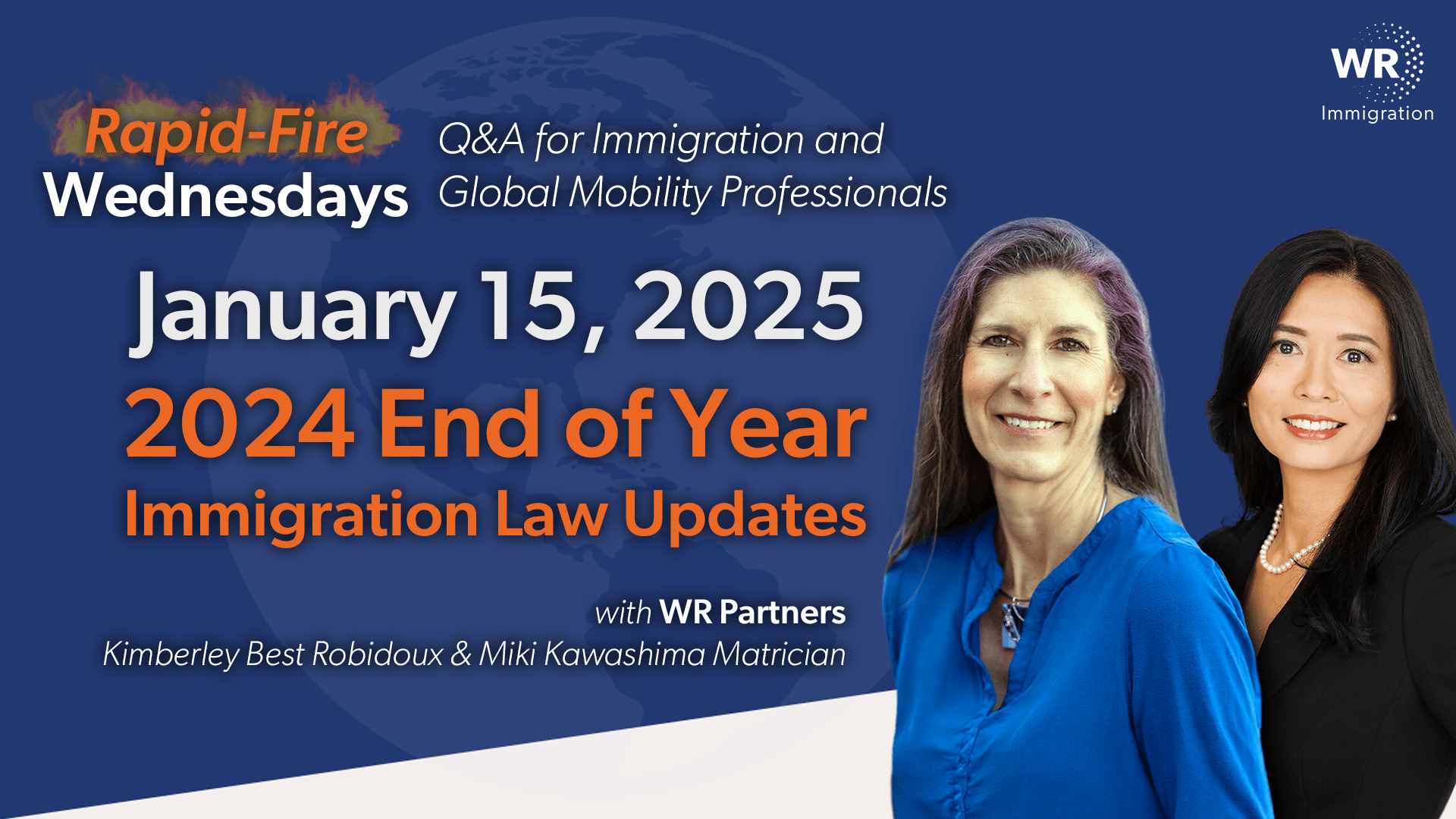The transcript version of our weekly Q&A livestream for corporate immigration professionals. Join our Immigration News Digest Newsletter for more immigration updates.
By Kimberley (Best) Robidoux & Miki Kawashima Matrician
🔥 Question: What is the impact of the executive order on birthright citizenship?
Response: One of the most significant executive orders signed seeks to eliminate birthright citizenship. This policy directly contradicts the 14th Amendment, which has long established that anyone born in the U.S. is a citizen. If enforced, this order could fundamentally alter citizenship rights, impacting both individuals and global mobility programs. Immigration professionals should monitor developments closely and advise affected employees accordingly.
🔥 Question: What does the executive order on national security and visa vetting entail?
Response: The order mandates a review of countries deemed to have insufficient visa vetting processes. This could lead to travel restrictions or additional scrutiny for individuals from specific nations. Employers should prepare for potential delays in visa approvals and increased security-related reviews for foreign national employees. Companies should ensure that their compliance measures align with these evolving requirements.
🔥 Question: How should employers and foreign nationals prepare for compliance checks?
Response: Given the likelihood of increased USCIS and FDNS site visits, employers should ensure their public access files and I-9 documents are up to date. H-1B, L-1, and STEM OPT extension workers should maintain proper documentation, including I-797 approval notices and I-129S forms. Immigration professionals should also remind employees to carry physical copies of their I-94s and passports, as digital versions may not always be accessible in crucial moments.
🔥 Question: What enforcement actions should companies be aware of?
Response: The executive order could lead to more Department of Labor investigations and ICE worksite actions. Employers should be aware that a wage and hour investigation could escalate into an I-9 audit. Additionally, Homeland Security Investigations (HSI) may conduct unannounced inspections. Employers must not waive their three-day notice for I-9 audits and should work with legal counsel to ensure compliance in advance.
🔥 Question: How can companies strengthen their compliance programs?
Response: Organizations should conduct biannual internal audits with immigration counsel to ensure all documentation and procedures align with legal requirements. Establishing clear document retention policies is crucial—companies should not retain outdated or incorrect documents beyond the required period. Training front desk personnel, HR teams, and managers on handling government site visits appropriately is also key to maintaining compliance.
🔥 Question: What role does global mobility play in managing these risks?
Response: Global mobility professionals must work closely with HR, in-house counsel, and leadership to strengthen best practices. Their role extends beyond compliance—they must also help employees navigate policy changes and potential disruptions. Ensuring that affected employees receive the necessary guidance and legal support will be critical in adapting to these executive orders.
Send us your questions via DM or using the below link!
HR Question Submission Form | Rapid-Fire Wednesdays
See you next week!


